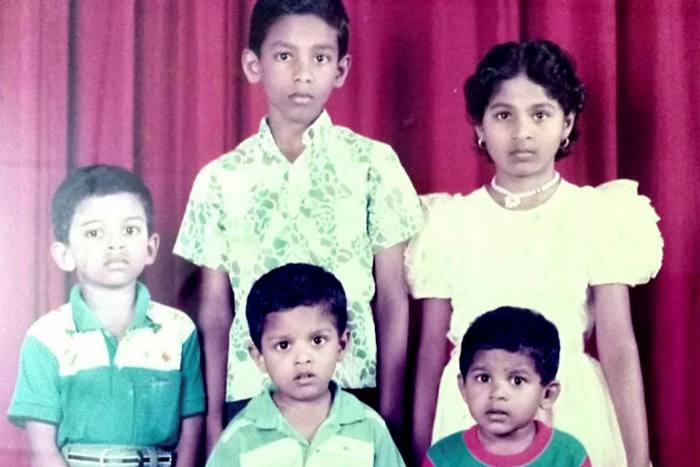
Kalwant Singh’s death sentence was settled with a Zoom call.
The Malaysian watched from prison as his appeal was virtually argued by three judges in Singapore this month. For Singh, convicted of smuggling about 120 grams of heroin, it was his last chance for isolation after spending more than six years on death row. He listened in silence as a translator interpreted the discussion.
Despite agreeing to give evidence to the police, Singh’s appeal was dismissed. He was hanged the next day.
After two years without a gallows, Singapore has carried out six executions in 2022, the highest level since 2018, including an intellectually disabled man who was hanged in April. At least seven other prisoners have received execution notices, according to anti-capital punishment activists in the city-state.
“Singapore does not give us time to digest the previous execution. Suddenly the next one is coming,” said Sangkari Pranthaman, whose brother Pannir Selvam is on death row. “Pannir is in the danger zone. . . My heart cries.”
Kirsten Han, who has campaigned against the death penalty for more than a decade, suspects more execution notices are being issued because she is running out of space on death row. “It’s definitely the worst year I’ve seen,” he said.
It could be “very similar to how hospitals clear beds for more patients. They are clearing cells for more people to put on death row.”
Singapore’s dogged commitment to capital punishment has exposed regressive policies in one of the world’s most liberal economies, critics said.
For decades, the affluent city-state has attracted wealthy expats with its reputation for safe streets, the rule of law and strong legal protections for business transactions.
But its treatment of foreigners convicted of drug trafficking even in small amounts exposes a darker side of Singapore, activists said.
The recent revival of the death penalty by the financial center may also be straining the diplomatic and trade relations on which it depends. Last week, the EU called for an immediate suspension of the gallows and warned Singapore that it was a “cruel and inhumane” punishment.
“Governments simply shouldn’t be in the business of killing people,” British tycoon Richard Branson told Vice News this year, as he called on Singapore not to execute Nagaenthran Dharmalingam, a Malaysian drug trafficker whose supporters say he had an IQ of 69.
“Business leaders take these things into consideration. . . . If you have a country that has the death penalty [and] another that does not carry the death penalty, you can choose where you will put new offices”.
Pannir Selvam, 4, with his siblings
However, Singaporean MNCs still avoid the issue. Companies such as Google and Goldman Sachs have been criticized for supporting liberal causes, and the government restricted them from funding the annual gay pride parade in 2016.
Singapore faces little pressure from voters to reverse its position. A 2016 survey by the National University of Singapore found that 87% of locals were in favor of executions for drug trafficking.
In the face of mounting criticism this year, Singapore has defended the death penalty as protecting lives, arguing that it had a “clear and deterrent effect on drug traffickers”. The home ministry added that the punishment was enforced through a “rigorous legal process with strict judicial safeguards” and that the courts found that Dharmalingam was not disqualified.
The government does not readily release details about who faces execution. The Transformative Justice Collective, which supports the convicts, said at least 59 people were on death row. Inmates’ families said inmates slept on the floor in isolated cells and could hear the sounds of others being hanged.
Finding lawyers willing to take on execution cases was difficult, although activists said four executions planned for this year have been put on hold due to legal challenges. Many convicts come from poor backgrounds, often across the border in Malaysia, and struggle to meet legal fees.
“No lawyer wants to deal with this case anymore,” said Nazera Lajim, days before her brother Nazeri was executed for drug trafficking this month. He said Nazeri, who had only a primary education and became addicted to heroin at the age of 14, had to make his own appeal in court.
recommended

Pranthaman, who travels overnight by bus from Malaysia to see her brother in prison on Saturdays, said she was detained by police and forced to testify after she posted a drawing on Facebook of the room where you visit him.
“I am no longer interested in going to this country, except to visit my brother,” he said. “They claim they are the safest country. [But] you have no freedom.”
The resurgence of executions, however, has not deterred foreigners from wealthier countries. Away from Changi Prison, expats still occupy the central business district.
“It’s not my place to say [Singapore] how to do your business . . If people are being tried in front of the court as expected, there it is,” said one recent arrival when asked about the executions. “If you don’t like it, there are other places to feel at home “.
[ad_2]
Source link



